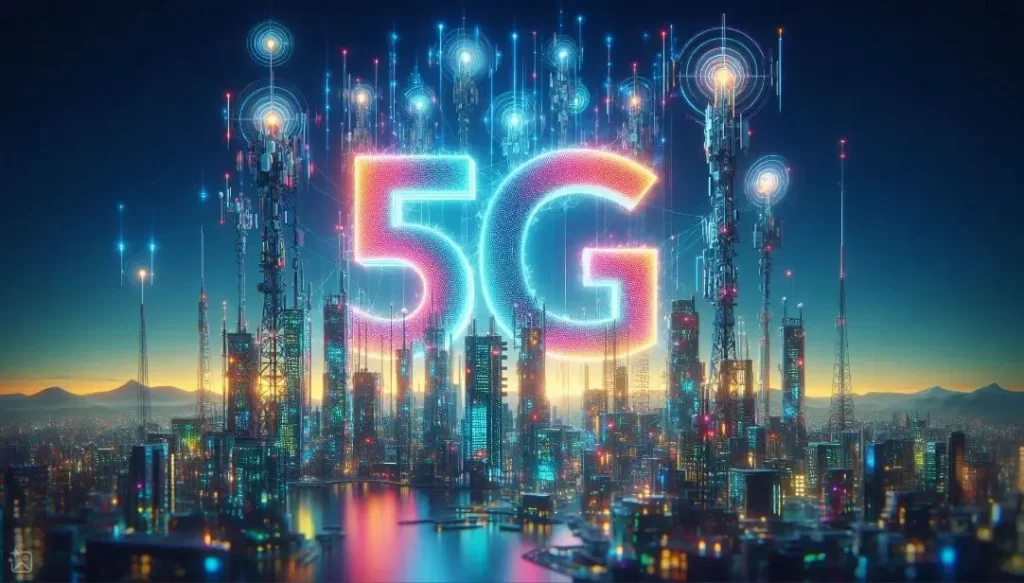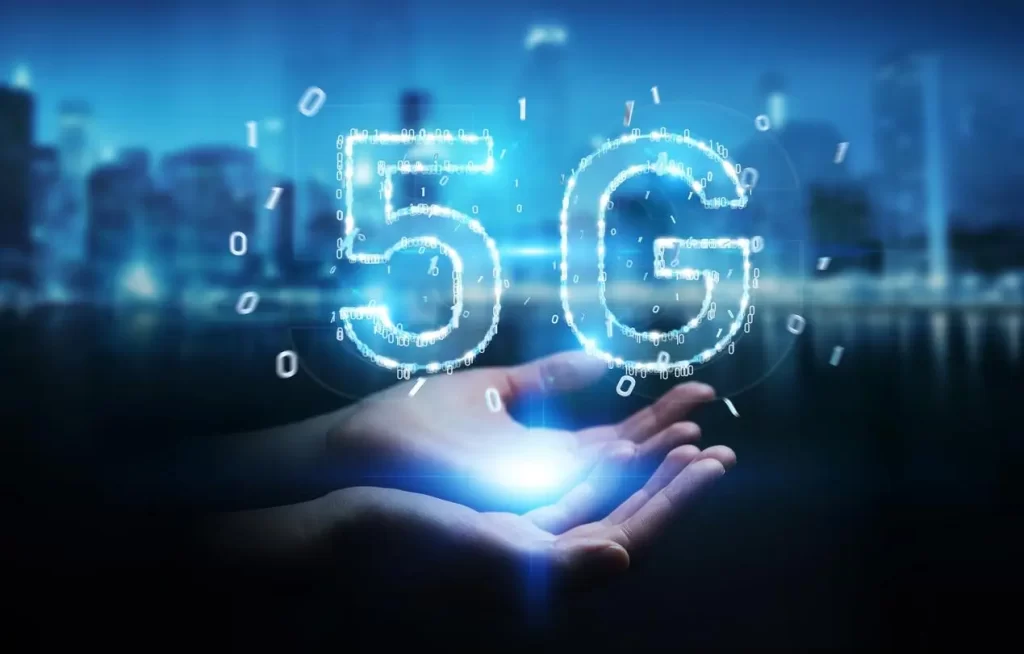The advent of 5G technology marks a monumental shift in how we connect, communicate, and innovate. As the fifth generation of mobile network technology, 5G promises to be more than just a faster internet experience. It will revolutionize industries, create new opportunities, and accelerate the development of cutting-edge technologies. This article explores how the 5G revolution is paving the way for a future of unparalleled technological innovation.
5G Revolution: Faster Speeds, Better Connectivity
At its core, 5G delivers significantly faster download and upload speeds compared to its predecessors. With speeds up to 100 times faster than 4G, 5G opens new possibilities. These include streaming ultra-high-definition video and real-time data transmission. These improvements in connectivity will lead to more seamless experiences in both personal and professional environments.
But it’s not just about speed. 5G’s low latency, under one millisecond, enables near-instant communication between devices. This creates new opportunities for industries like autonomous vehicles, healthcare, and manufacturing. At the same time, micro technology provides technological support for the development of 5G technology.

5G Revolution: Empowering the Internet of Things (IoT)
One of the most exciting prospects of 5G advancement is its ability to support the exponential growth of the Internet of Things (IoT). IoT refers to the network of connected devices, from smart homes to industrial machinery, that communicate and share data in real time. 5G technology allows billions of devices to connect simultaneously, exchanging vast amounts of data with minimal delays.
This massive increase in connectivity will foster smart cities, where sensors and connected systems work in harmony to improve infrastructure, traffic management, public safety, and more. Smart homes, powered by 5G technology, will be able to offer more responsive and efficient experiences, while smart factories will leverage real-time data for automation and predictive maintenance.
5G Revolution: Transforming Industries
5G advancement is set to transform sectors such as healthcare, automotive, manufacturing, entertainment, and more. In healthcare, 5G will enable remote surgeries and real-time health monitoring, allowing doctors to perform procedures from afar with precision and confidence. This is particularly crucial in rural or underserved areas where access to specialists is limited.
In the automotive industry, 5G advancement will play a key role in the development of autonomous vehicles. The ability to exchange data between cars and infrastructure in real time will be essential for the safe and efficient operation of self-driving cars. For manufacturers, 5G will drive the next wave of Industry 4.0. IoT-enabled machines, robots, and systems will work together to create smarter, more efficient production lines.
5G and Artificial Intelligence (AI)
The synergy between 5G and artificial intelligence (AI) will accelerate the deployment of advanced AI applications. With 5G’s ability to transmit massive amounts of data quickly and with minimal latency, AI algorithms can process information faster and more accurately. This will enhance everything from voice recognition and natural language processing to real-time decision-making in autonomous systems.
Moreover, 5G will enable edge computing, processing data closer to the source instead of in centralized cloud data centers. This is particularly important for AI-driven applications that require instant data processing, such as in autonomous vehicles or smart factories.

Economic and Social Impacts
The economic benefits of 5G evolution are immense. According to industry experts, 5G evolution is expected to contribute trillions of dollars to the global economy by the end of the decade. It will create millions of jobs, foster new business models, and spur innovation across all sectors.
On a social level, the 5G revolution will help bridge the digital divide. Rural and underserved communities, with limited access to high-speed internet, will connect more easily to essential services. These include education, healthcare, and employment opportunities. Increased connectivity will promote greater inclusivity and ensure no one is left behind in the digital age.
Challenges on the Road to 5G
While the potential benefits of 5G are enormous, there are challenges that need to be addressed. Building the necessary infrastructure for 5G, including millions of small cell towers, is a complex and expensive task. Governments and private companies must collaborate to roll out 5G networks efficiently and equitably.
Security and privacy are also top concerns. As more devices connect to the internet, the potential for cyberattacks increases. Ensuring that 5G networks are secure from vulnerabilities will require constant innovation and robust cybersecurity measures.
The Future of 5G and Beyond
As 5G networks continue to expand, the focus will gradually shift toward developing the next generation of wireless technology—6G. While 5G is transformative, 6G promises faster speeds and more reliable connections. It will support advanced technologies like brain-computer interfaces and holographic communication.
In the coming years, 5G will lay the groundwork for next-generation technologies. It will ensure a brighter, faster future of connectivity. Connectivity will become more integrated than ever before.
Conclusion
The 5G revolution is not just about faster internet. It is about transforming how we live, work, and interact. By empowering IoT, enhancing AI, and driving innovations across industries, 5G will play a pivotal role in shaping the future of technological advancement. As we look ahead, it is clear that 5G is not just a catalyst for change—it’s the key to unlocking the next wave of global innovation.


